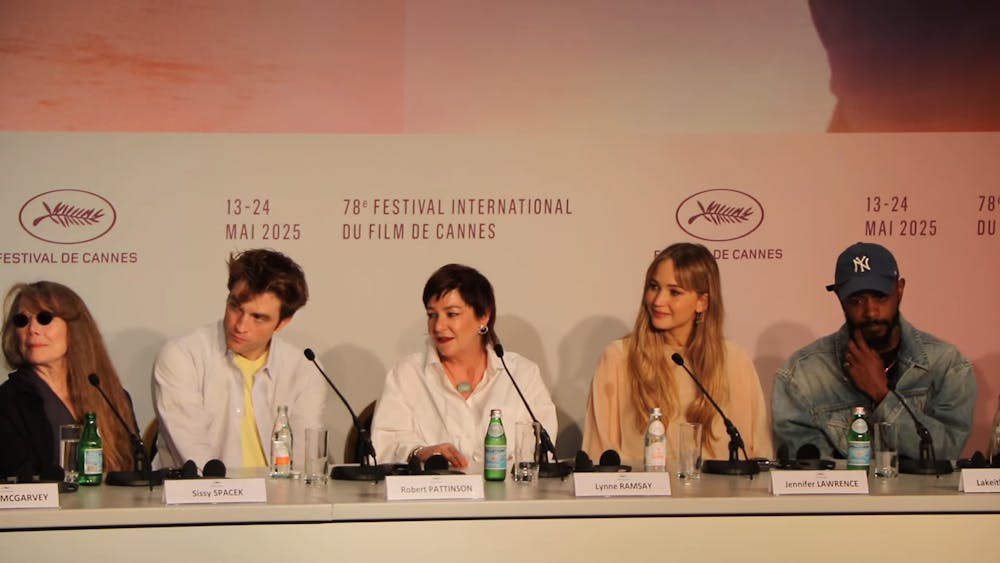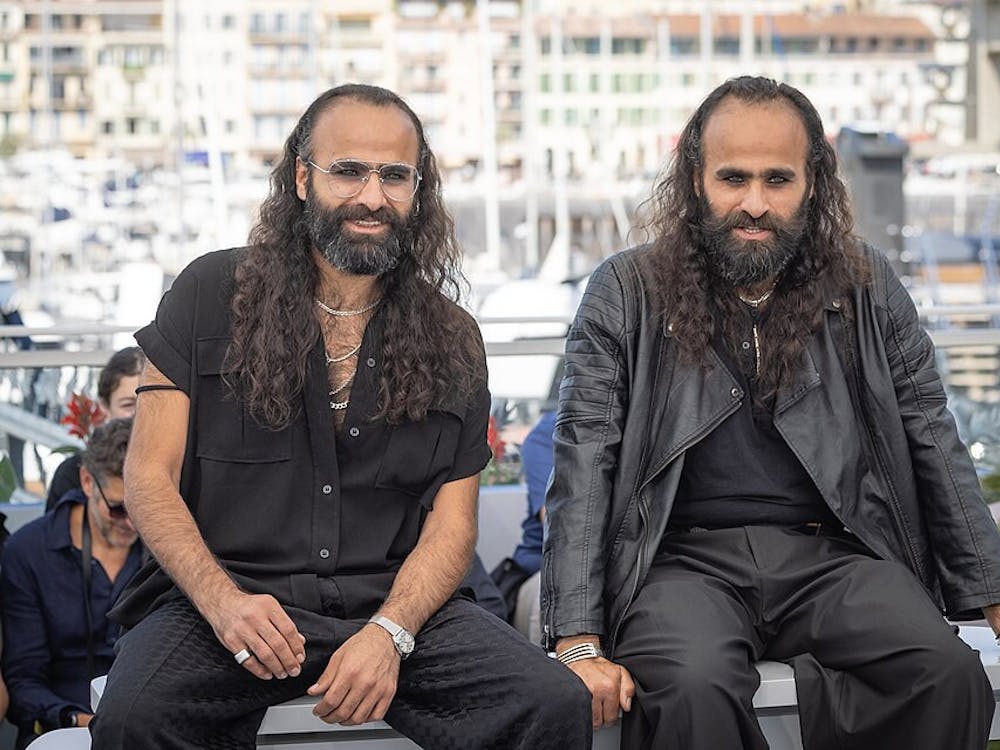Another picture about a woman slowly losing her sanity in an unhappy relationship doesn’t exactly reinvent the wheel of storytelling. But Die My Love, through director Lynne Ramsay’s sharp direction and Jennifer Lawrence’s phenomenal lead performance, executes a familiar trope with more depth; there’s more to linger on than the usual visceral feelings that arise from being in a frenzied, emotional coma.
The film is based on Ariana Harwicz’s modernist-esque Spanish novel, Die, My Love, which was a finalist for the Man Booker International Prize in 2018. It is a little less than 150 pages of a woman’s stream of consciousness surrounding the struggles of marriage and motherhood. I read the novel a few hours before seeing Ramsay’s adaptation. This was a rare case where having done so not only made the viewing experience of the film better but also retroactively made me appreciate aspects of the novel more because of how much I enjoyed Ramsay’s choices about what to highlight in her adaptation.
Grace (Jennifer Lawrence) leaves New York to live in Jackson’s (Robert Pattinson) newly inherited family home in Montana. Grace’s alienation seems to be heightened in this rural setting as she is stuck with her newborn son while Jackson goes off to work as a trucker. While Grace attempts to be a good mother and partner, feelings of resentment, abandonment, loneliness and sexual frustration grow amid her emotional turmoil.
Although the film is certainly funny at times (e.g. a scene in a grocery store where Grace bluntly asks why the cashier is so concerned with her baby), it is ultimately built around extreme stress-inducing tension that is only relieved through acts of verbal and physical violence from Grace.
Narratively, the story is decently bare, and a less talented filmmaker could have made this a two hour chore about a couple whose next move should be an immediate and hasty break-up. However, Ramsay embeds enough moments of relief throughout the runtime to make Grace’s life seem a little better than complete hell. It also makes her entrapment more complicated; it’s not entirely so cruel that she needs to escape right away. Whenever Grace is in the grass or the forest, the viewer can sense her loneliness. But, because of the position of the camera and the gorgeous colors in these moments, there lingers another sense — the sense that, maybe, she can find the stability she has been so desperately searching for.
There’s also a sweet scene placed at the halfway mark of the film: Jackson and Grace are crawling in the grass together, messing around like how they used to. With the sun shining on them both, Jackson asks Grace to marry him. Before this moment, most of their relationship was defined by bickering and debasing from both parties. Here, finally, is a scene of genuine joy between the two.
Jennifer Lawrence should be receiving awards buzz once awards season ramps up, because she gives her all in every minute. Lawrence is committed to Grace’s psychological demise through some disturbing but vulnerable feats of physicality. The way she scratches at her home’s wallpaper, crashes through a glass door or bangs her head against a mirror all work to create a complete picture of Grace’s eroding sense of self. Robert Pattinson doesn’t go as mad in his performance, but he’s no stranger to playing an off-putting man. His Jackson conveys enough to make you feel appropriately unnerved while maintaining the necessary humanity of a man who may just be unintentionally disconnected from his wife in ways he doesn’t understand.
However, the film shows cracks when it’s closely examined as a portrayal of motherhood or post-partum depression. Unlike the novel, the film is less focused on Grace’s role as a mother and how her baby has affected her. There are certainly accurate depictions of the typical experiences of motherhood: strangers being too handsy with your baby, your baby crying relentlessly or feeling like you’ve failed because you can’t do something simple like make a birthday cake. However, the film portrays Grace’s depression as a byproduct of her own restlessness and unfulfilling romantic relationship rather than as a consequence of child-rearing.
Outside of the first 15 minutes, very few scenes of the tangible difficulties of raising a newborn are shown. The script does not bother to explore how Grace’s identity as a mother may cause a loss of autonomy either. Her disintegrating sense of self is tied to her relationship, so as an interrogation of marriage and its failures, the film is very successful. However, Ramsay’s We Need to Talk About Kevin is the film that’s actually about how the worst of motherhood fractures a woman.
As Die My Love comes to its end, almost all of its moments of reprise are extinguished. The final scene doesn’t let the viewer dwell in fantastical daydreams of a perfect reconciliation. One could read it as hostile and bleak. But there is an oddly rewarding experience of sitting in the gutting aftermath that is seeing the full display of human impulses. Die My Love, like the most complicated relationships, will pull you into unusual and ugly territory, but it offers a firsthand account of the suffocating and raw reality that emerges when you engulf yourself in another.





